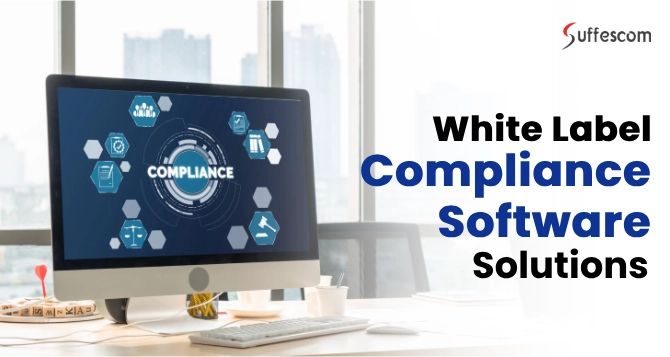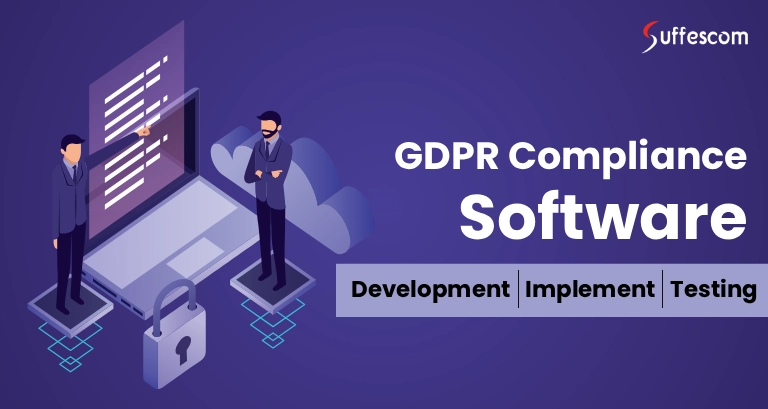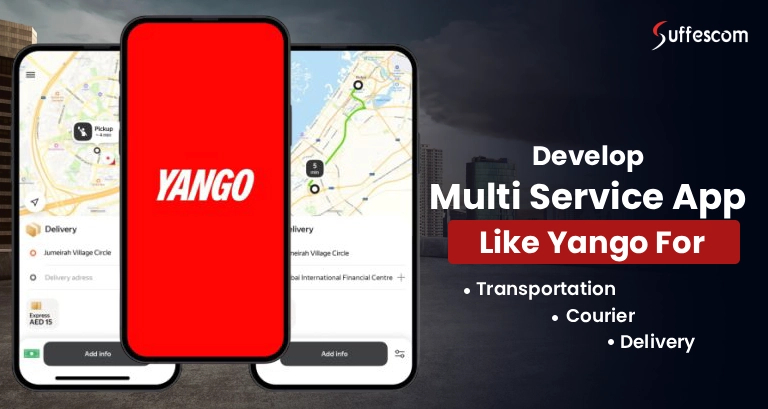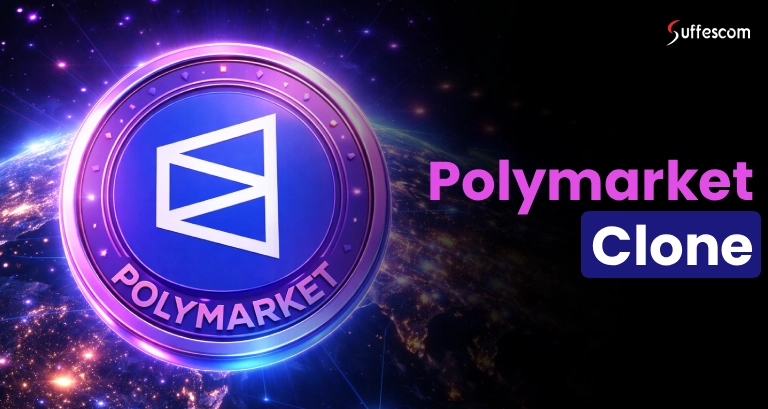White Label Compliance Software Solutions: Accelerate Business Growth

With the rapid pace of regulations, businesses require robust, expandable solutions so they can remain compliant without compromising on efficiency. That is where white label compliance software comes into play. Built for various industries like finance, healthcare, fintech, or other heavily regulated sectors, the compliance automation software streamlines complicated compliance processes—from document monitoring and audit trail to real-time risk scoring and policy management.
As a white label partner, our compliance automation software is designed to grow with your customers' business, supported by enterprise-level security and real-time reporting capabilities. The platform delivers value, enhances client confidence, and enhances operational effectiveness by minimizing manual effort while maintaining current regulatory compliance. Whether you're seeking to diversify your services or optimize your current platform, our white label solution makes you a compliance innovation leader without hefty development costs.
By 2030, the compliance management software market is anticipated to grow to $56.99 billion. This shows that almost every industry is keen on integrating this robust software into their pre-existing platforms. Moreover, it's beneficial to go for a White label AI-powered compliance tool, in comparison to one built from scratch. Our white label apps for sale are available for various industries that help you stand out from the competition.
What is Compliance Management Software and How Does it Work?
CMS is an integrated system that helps businesses be whether small or large, and belonging to any industry. It's essentially a comprehensive suite of tools that helps organizations to mitigate compliance risks and avoid the perils of data breaches.
- Analyzes and identifies the potential risks in the business processes.
- Performs automated workflows like auditing and reporting
- Real-time monitoring of compliance, alerting about possible breaches.
- All the key compliance metrics are reported to the decision makers.
- The authority to alter or view the data is permitted only to authenticated users.
White Label Compliance Management Tool
Our white label compliance management software has gained traction for several valid reasons that resonate with businesses across various industries. Below, we have illustrated why our white label compliance management tool is popular among businesses.
1. Complete Customizable Branding
We offer end-to-end white label solutions so that partners claim the software as their own. All the way from logos and color schemes to custom domains and email templates, businesses deliver a consistent brand experience to their customers without having to develop software from scratch.
2. Broad Feature Set
Our website combines all the functions of compliance management into one simple-to-use system, like risk assessment, audit control, training modules, incident reporting, and live monitoring. All this functionality addresses the diverse needs of small businesses, medium businesses, and large corporations.
3. Automated Updates & Regulatory Monitoring
We stay at the forefront of regulatory development, continually updating the platform to reflect new legislation and standards. This proactive approach reduces the threat of non-compliance.
4. Outstanding Support & Partnership
Business partners and customers benefit from concentrated onboarding, training, and ongoing support. We build strong relationships, ensuring that our software is developed based on customer feedback and industry trends.
All these strengths make our white label compliance management software a respected, top-ranked choice for organizations that seek dependable, flexible compliance solutions.
Salient Features of White Label Compliance Software
Document Management
Allows businesses to centralize the authoring, storage, dispatch, and revision of documents related to compliance. Users monitor document revisions, control approval processes, eliminate miscommunication, and ensure regulatory documents are imposed consistently.
Risk Management
Allows businesses to classify risks, allocate scores in terms of impact and probability, and create mitigation plans. Dashboards and reports assist in tracking risk exposure in real-time. This prevents potential regulatory breaches and financial sanctions.
Audit Management
Helps with the planning, scheduling, and carrying out of internal and external audits. The system makes audit checklists, gives out tasks, collects evidence, and keeps track of findings without any problems. This feature helps make sure that errors are detected in a systematic way.
Incident Management
This feature enables users to log and handle compliance incidents or violations, for example, data breaches or workplace corruption. The system records information about the incident, supports investigations, allocates resolution tasks, and monitors results. Documentation provides an auditable trail in case of regulatory inspection.
Integration Capabilities
Allows the integration of the software with HR and ERP systems without any hassle. This makes it easy to share information and ensures that compliance controls improve efficiency and data integrity.
Intuitive Dashboard
Provides valuable insights about the business by showing the data in a visually appealing manner and highlighting the metrics, market trends, and the associated risks.
Robust Security
The PCI DSS Level 1, multi-factor authentication feature guarantees the security and the data integrity that helps with regular audits, data encryption, automated workflows, access controls, data backup &recovery, etc.
Data Import/Export
Allows the secure importing and exporting of data from databases and different software to make the onboarding and integration much easier. It increases flexibility, makes audits easier in terms of compliance, and provides continuity by making data movable, supporting cross-system compatibility.
Latest integrations in our White Label Compliance Management Software Elevating Performance
AI Models
AI algorithms in compliance software scan vast data pools for patterns, alert for deviations, and forecast potential compliance violations. AI enhances regulatory compliance processes, effectively automates decision-making, and minimizes human reviews through learning from historical events. AI-powered compliance tools improve audit efficiency, reporting, and overall governance processes.
Blockchain
Blockchain integration provides secure, unalterable, and transparent record-keeping in compliance systems. It ensures immutable audit trails, transactions, or document versions, which increases trust and traceability. The smart contract is the heart of the decentralized technology, making compliance checks and verifications automatic and authentic.
Cloud
Cloud integration within compliance management software provides scalability, flexibility, and remote access. It provides centralized data storage and real-time collaboration across departments or geographies. Cloud platforms provide automatic update capability, so the software stays aligned with changing regulations.
RPA
Integrating robotic process automation in compliance software also helps automate mundane and repetitive activities, including data input, monitoring regulatory changes, and generating compliance reports. Bots extract data from different systems, validate it against compliance rules, and raise alerts for exceptions. RPA reduces human errors, improves consistency, and allows employees to concentrate on key tasks.
ID Verification and Badge Printing Software
ID verification and badge printing integrations tighten security and compliance with regulations within facilities or events. They guarantee that only those who have authorized access can utilize real-time identity verification through documents, biometrics, or databases. This facilitates adherence to access control standards, visitor control rules, and audit compliance.
Benefits of White-label Compliance Software
Documentation and Audit Trails
Compliance software maintains detailed, organized records of all compliance activity, communication, and documents. It holds everything within a central database, enabling instant retrieval of information during internal audits or external audits. Detailed audit trails increase transparency and accountability, showing due care and ease of regulator inspections.
Scalability and Adaptability
As businesses grow and regulations evolve, compliance management software is easily expandable to accommodate increased complexity. With business growth in new countries or new product segments, the system adapts to new compliance requirements without interrupting operations. This flexibility supports long-term growth with integrity in compliance.
Enhanced Collaboration
To bring together departments such as operations, finance, legal, and human resources in real-time, the latest compliance software incorporates collaboration tools. Teams collaborate to assign tasks, exchange messages, and monitor compliance project progress. This improves communication, dismantles organizational silos, and fosters a compliance culture in the company.
Increased Efficiency
The white-label compliance management software utilizes automated tools to reduce administrative workloads. By enabling the compliance personnel and the stakeholders to completely devote their time to strategic projects rather than focusing on redundant work, it boosts productivity to the next level.
Data Analytics
Employee performance, compliance trends, and risks are all tracked and reported through the analytics and reporting dashboards. These allow companies to make informed, data-driven decisions about risk management strategies.
Use Cases of White Label Compliance Management Tool
1. Finance and Accounting
Compliance management software is crucial in addressing the needs of regulations such as SOX, AML, and GDPR. It facilitates financial institutions with services to keep accurate records, detect transactions for suspicious behavior. The white label tax compliance software facilitates audit trails, supports internal and external audit management, and delivers compliant and transparent financial reporting. It will minimize the likelihood of fraud and promote corporate governance by automating compliance processes.
2. Transportation
Trucking companies use compliance management software to comply with the rules and regulations of reputable organizations. The software is used to regulate driver logbooks, vehicle inspections, route permits, and fuel tax compliance. It also supports the monitoring of driver certifications, hours of service, and drug testing results.
3. Logistics
Logistics firms will have to adhere to various safety, environmental, and trading regulations. Compliance management software supports logistics companies in handling transport of goods documentation, customs declarations, and supply chain certifications. It maintains safety standards for the storage and handling of materials and ensures the compliance of driver hour regulations and vehicle maintenance schedules with transportation rules.
4. Retail
White-label compliance management software is used by retailers to keep up with changing rules and monitor compliance activities and documentation. The software ensures marketing practices meet advertising law requirements, labeling of inventory is in line with consumer protection laws, and staff policies meet employment laws. The software can also assist in monitoring compliance with information privacy laws, particularly with the increasing use of customer rewards programs and online purchases made through websites.
5. Healthcare
Healthcare professionals utilize the software to manage documentation, track employee training, and handle the proper handling of patient information. The software keeps the compliance procedures updated, automates audits, and prevents costly legal issues. The software is also used to monitor the use of medical devices, manage clinical trials, and report adverse events in a timely and standardized manner.
Emerging Technologies Used in Readymade Compliance Software
With technological evolution, various transformative technologies are used in white label compliance software that increases adaptability and efficiency to an optimal level. The ultimate motive behind integrating ultra-modern technologies within the compliance management software is to help automate repetitive tasks, report generation, data entry, etc.
AI is one of the most advanced technologies as it allows automated risk assessment and finds inconsistencies at the earliest. AI-powered consent management software identifies violations of compliance while scanning large sets of data in real time, ultimately enhancing decision-making.
Additionally, machine learning, which is a part of AI, is also instrumental in detecting the anomalies at the earliest before they blow up. A white label AI-driven compliance module embedded into the existing platform assists in interpreting the intricate regulatory and legal jargon for ease of compliance by organizations with dynamic regulatory environments. AI has the power to enhance the regulatory compliance processes by streamlining workflows and live monitoring & reporting.
How Much Does White Label Compliance Management Software Cost?
The white label compliance software costs between $10000 - $30000, based on specific parameters that are mentioned below;
Project Scope & Complexity: More complex features and modules result in higher cost. The basic versions are relatively less expensive than the advanced ones.
Third-party Integrations: Integrations with ERP and document systems lead to higher costs, as they involve expert advice and testing.
Maintenance & Updates: The maintenance charges include bug fixes, software updates, and feature enhancements.
Compliance & Security Requirements: compliance with the industry-specific standards like HIPAA, GDPR
The list is long, so to get the exact quote, get in touch with our experts.
Why Choose Suffescom As Your White Label Service Provider Company?
We are a team of skilled professionals and experts who have developed feature-rich bespoke software for startups and large-scale enterprises, meeting their project goals and objectives.
Continuous Support & Transparency
We stand for transparent communication, and our collaborations are based on trust, with live updates, reports, and assistance whenever required.
Confidentiality & NDA Protection
All projects are covered by strong non-disclosure agreements (NDAs) where every intricate detail is kept confidential, preventing unauthorized disclosure.
End-to-End Services
From strategy to delivery, we offer a complete range of white-label services under one roof. Whether you require recurring service provision or ad-hoc projects, we're qualified to deliver everything.
Proven Expertise
We have over a decade of experience working in various industries and cutting-edge technologies, helping deliver top-tier, turnkey solutions that will help elevate your brand.
Quick Turnaround Times
We deliver quickly and reliably without sacrificing quality, so you can stay ahead of the competition and satisfy your clients' needs every time.
On-Time Project Delivery
Our project management team adopts agile methodologies and delivers projects within the agreed-upon timeframe without compromising quality.
FAQs Related To White Label Compliance Software
1. Is white label compliance software scalable for growing businesses?
Absolutely! The software offers scalable solutions, helping businesses with modular features, seamless integrations, and the ability to accommodate more users.
2. How much time does it take to launch a white label compliance management tool?
It takes approximately 3-4 days to launch the software, depending on the level of complexity involved.
3. What business benefits are involved with white label compliance management software?
Increased brand identity, cost reduction, automated workflows, and Increased Revenue are popular benefits associated with the software.
4. How much does white label compliance software cost?
The cost typically ranges between $10,000 and $30,000, depending on the business requirements.
5. How does the readymade compliance software help in conducting audits and assessments?
The software comes with built-in tools and maintains a centralised and time-stamped audit trail of every activity involved, helping auditors to detect abnormalities and reduce effort.
6. What types of regulations does your white-label compliance management software support?
HIPAA, SOX, GDPR, ISO 27001, and PCI-DSS are among the regulations that our software supports.







